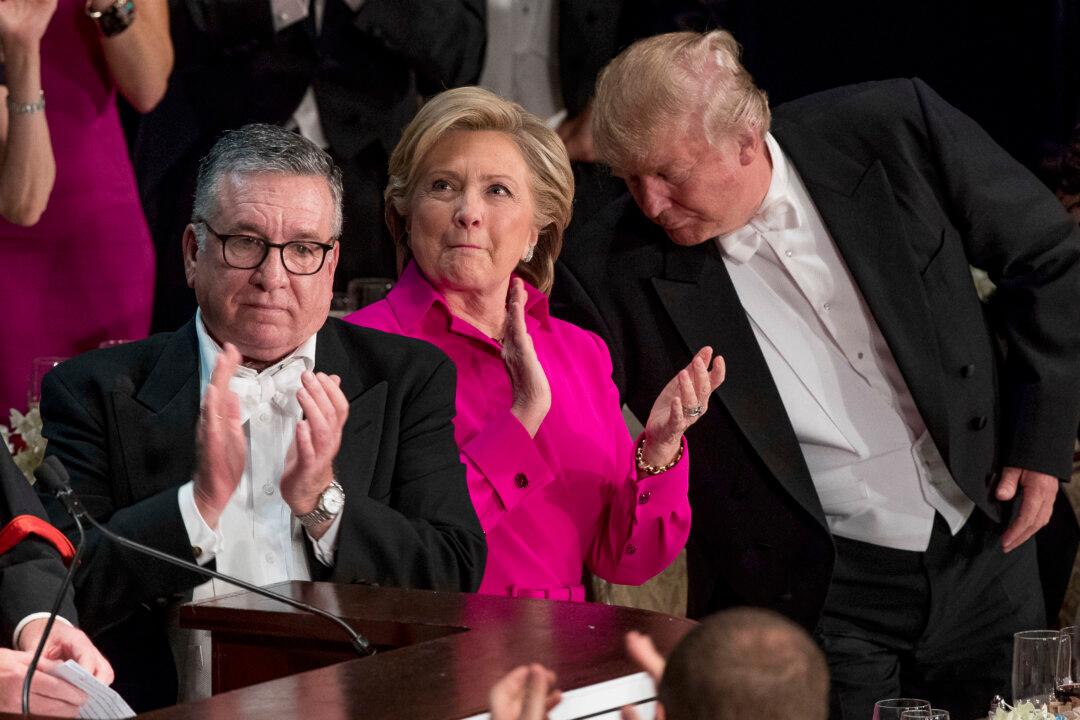WASHINGTON—Sharply at odds over the Republican’s assertions that he may not concede if he loses on Election Day, Donald Trump and Hillary Clinton chose cutting jabs over lighthearted teasing as they came face-to-face at a fundraiser. Yet both showed flashes of willingness to see beyond their bitter election battle, the archbishop who sat between them said Friday.
Still, New York’s Cardinal Timothy Dolan summed up the two candidates’ chemistry at a fundraiser in a word: “Awkward.”
The controversy over Trump’s remarkable assertions trailed the candidates to the Alfred E. Smith Memorial Foundation Dinner on Thursday, a traditionally genial event that turned bitter at times. Dolan, thrust into the role of temporary peacemaker, described a less antagonistic moment backstage after he invited them to pray.
“After the little prayer, Mr. Trump tuned to Secretary Clinton and said, ‘You know, you are one tough and talented woman,’ and he said this has been a good experience,” Dolan told NBC’s “Today” on Friday. “And she said, ‘Donald, whatever happens, we need to work together afterwards.”






